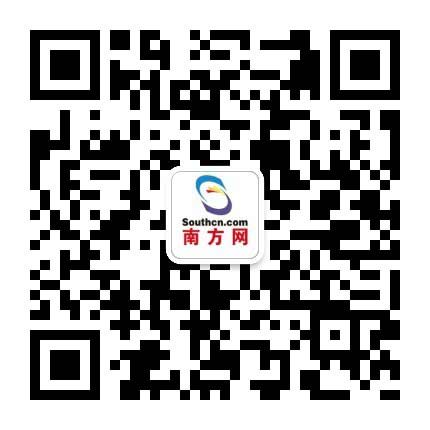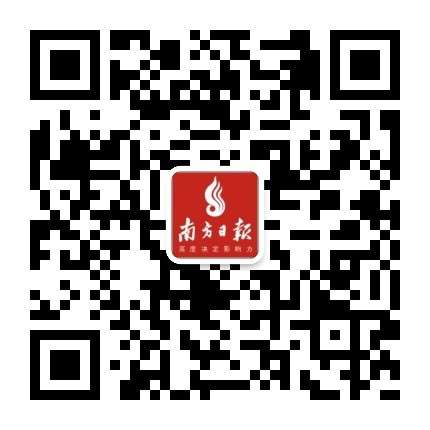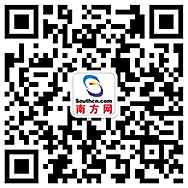第三十二届中国新闻奖 二等奖
项目:国际传播
题目:新疆棉花遭遇“明枪”与“暗战”
作者/主创人员:毛淑杰
编辑:姚忆江
原创单位:南方周末
刊播单位/发布平台:南方周末
【中文版】
实地调查|新疆棉花遭遇“明枪”与“暗战”
春寒料峭的三月,新疆棉花却冲上热搜。
2021年3月24日,在中国社交媒体平台上,瑞典快时尚品牌H&M公司遭遇猛烈的舆论“炮轰”。该公司在官网发布的一项声明称,不再采购新疆棉花。随后,H&M在中国娱乐圈的商业伙伴,如演员黄轩、宋茜等宣布与H&M“切割”。截至3月25日,淘宝、京东、拼多多等电商巨头已屏蔽或下架H&M的线上商店和相关商品。而事件还在不断发酵,更多品牌卷入其中。
2020年冬天,南方周末记者曾实地走访新疆南北,深入采访棉花农场、轧花厂、棉种公司、服装厂等棉纺供应链企业等。不少新疆棉企深陷困境,而困境背后,是一场围绕国际棉纺话语权的“暗战”。

尉犁县中良棉业有限责任公司维吾尔族员工 (南方周末记者 毛淑杰/图)
“发酵半年的坏消息”
正值一年中最冷的时候,白天气温也在零下,正午的太阳也晒不化洼地里的冰。
清晨,维吾尔族小伙买买提·阿力甫开车到工厂上班。一年前,他终于攒够钱买了一辆小汽车,换掉了破电动车,“车是二手的,才几万块钱,有暖气。”
买买提今年25岁,是新疆尉犁县英库勒镇人。2017年夏天,他从微信朋友圈里看到家乡一家轧花厂正在招工,随后应聘成为该厂一名职工。“家里有30亩地,以前在家帮父母干农活,农闲时打短工。现在和工厂的合同是一年一签,平均每月工资4000元,社保齐全,收入有了保障。”
2020年12月的一天,买买提在厂里驾驶叉车,搬运皮棉。去籽的棉花被压实装包,每包有数百公斤。老板张彪看到后叮嘱,慢点儿,注意安全。买买提觉得这个比自己只大几岁的年轻老板“人还不错”,新的一年他还想继续干下去。
买买提不知道的是,他的家乡以及占据中国棉花产量八成的新疆棉花,正陷入一场舆论漩涡。
买买提的老板张彪坐在办公室里,面露难色。厂区内,工人们麻利地给轧好的棉花大包贴上标签,一摞摞整齐摆放。不远处,从棉农处收购来的籽棉正堆在露天货场上,耸起一座座“棉花山”。
张彪是新疆尉犁县众望纺织有限公司(以下简称“众望纺织“)的老板。进入12月,新疆棉花的收购已经结束,各大轧花厂陆续开启皮棉销售。不过,一贯受欢迎的新疆长绒棉,2020年的销量却并不乐观。
“2020年10月,与公司合作多年的瑞士良好棉花发展协会(以下简称“BCI”)突然发来了解约通知,给今年的皮棉销售带来了一定影响。”
张彪是个“90后”。大学毕业后,他没有留在东部沿海的一个省会城市,而是回到尉犁县,接过了家族在1990年代建起的棉花厂。
“我们从棉农手里收购籽棉,然后加工成皮棉,再销往下游。”张彪称,收购籽棉动辄就是上万吨,投入资金成本几千万元。如果没有稳定的合作客户,或者遇到价格波动的年份,很容易造成大额亏损。
2015年,张彪发动数百名农户成立“众望棉花种植专业合作社”,随后成为BCI的执行合作伙伴。在日常工作中,张彪需要按照BCI项目要求,指导棉农培训、种植、采收等工作,并按季度上报棉花数据。BCI还会定期派出人员到合作伙伴处验收审查。
BCI是一家国际性非盈利会员组织,旗下会员的棉花供应量和采购量在全球都排在前列。“可持续棉花生产标准”是当前国际纺织品流通贸易领域的重要准入标准。除了BCI之外,澳大利亚、巴西、印度等棉花生产大国也已制定了本国标准,而这一标准在中国仍是空白。
经BCI认证的棉花,市场认可度更高。张彪也表示,“跟普通棉花比,有BCI认证的,每吨价格高出几十元到几百元。而且,棉花产业下游的贸易商、纱厂也是BCI会员,加入其中可以广交朋友,拓展业务。”
BCI中国区员工刘志介绍称,目前国际上关于可持续棉花的评判标准很多,而BCI的优势在于,既有系统的可持续棉花评判标准,也有庞大的棉花生产量。如今,BCI数千名会员遍布全球,且类型多样,覆盖上下游棉纺织产业链。
每年3月起,新疆棉农便开始棉花种植劳作。按照惯例,张彪也要将棉田数据上报。然而,2020年3月,张彪却意外收到了BCI方面发来的“暂停认证”邮件。
邮件显示,“鉴于目前国际环境的复杂情况,BCI理事会最终决定,在2020-2021年度,暂停在中国新疆地区的认证计划和证书。同时,BCI将利用这段时间,对标准进行进一步升级和优化,以应对复杂多变的外部环境。”
在随后的半年里,张彪发现BCI方面在新疆的诸多活动并未停止,他也继续依照BCI要求上报相关数据,并和BCI南疆对接人联络沟通事情进展。“那个时候只是以为暂停一年的认证,对未来的合作还是有期待的。”张彪说。
半年后,坏消息还是来了。
2020年10月,张彪收到了BCI中国办公室工作人员发来的邮件。其中显示:“鉴于目前有关良好棉花标准体系升级工作的复杂情况,BCI决定目前暂时终止执行合作伙伴协议。”
“前一封邮件说‘暂停2020-2021年度’的认证,而这封邮件说的是‘暂时终止’。感觉情况非但没有好转,反而进一步恶化了。”张彪说。
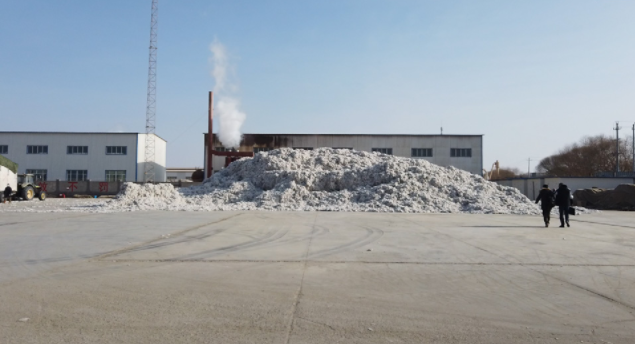
尉犁县众望纺织有限公司
(南方周末记者 毛淑杰/图)
“决策来自瑞士总部”
“终止合作”邮件发送数周后,BCI揭晓了谜底。
2020年10月21日,BCI瑞士总部在官网发布声明称,2020年3月起,BCI陆续停止了对中国新疆地区的棉花发放认证书,10月全面终止合作。
声明指出,“对中国新疆维吾尔自治区强迫劳动和其他侵犯人权行为的持续指控,造成了越来越难以维持的经营环境。因此,BCI决定立即停止该地区的所有实地活动,包括能力建设以及数据监测和报告。”
2020年12月18日,BCI瑞士总部在另一则公开声明中指出:“研究人员发现……新疆地区农场一级强迫劳动的风险越来越大。”
面对指控,包括中国区员工在内的诸多人士都感到不解:BCI瑞士总部缘何发出这样的声明?
BCI中国区员工刘志向南方周末记者透露,当前BCI在中国新疆博乐、库尔勒、阿克苏等地有十余家执行合作伙伴。2020年中,BCI中国区曾派人员到新疆多地调研。 “这次调研并没有覆盖全部(合作伙伴),而是选择了其中几家。据我了解到的信息,这次考察并没有发现相关企业有强迫劳动的情况。”刘志说。
巴州(巴音郭楞蒙古自治州)泰昌农业开发有限公司总经理李成俊也向南方周末记者证实,2020年5月,BCI中国区多名工作人员到达泰昌实业,进行了为期2天的调研,询问了工厂的经营情况和用工情况。“当时并没有发生不愉快的经历,后期也没有收到发现农场违反BCI规定的反馈。”李成俊回忆。
其实,早在公司第一次和BCI合作时,张彪就意识到用工是BCI考核棉企的重要一项。2020年以来,BCI方面也曾要求棉农对种植环节拍照、录像,证明在生产过程中符合BCI要求。在张彪看来,“我们2015年开始接受认证,其间一直都没有问题。为什么偏偏在2020年出现问题了呢?所谓调查中发现了问题,我感觉是子虚乌有的。”
2021年3月1日,BCI上海代表处在官方微信公众号上发表申明称,近期BCI上海代表处收到之前部分新疆执行合作伙伴的问询函。BCI中国项目团队严格遵照BCI的审核原则,从2012年开始对新疆项目点所执行的历年第二方可信度审核和第三方验证,从未发现一例有关强迫劳动的事件。
该申明还显示,BCI上海代表处将与新疆执行合作伙伴继续保持沟通,共同维护供应链可持续发展。
BCI瑞士总部如何得出“存在强迫劳动风险”一事依旧成谜。不过,BCI暂停合作对新疆棉花的不利影响已经显现。
新疆昊星棉麻责任有限公司(以下简称“昊星棉麻”)位于新疆博尔塔拉蒙古自治州博乐市,名下有8家棉花农场,每年皮棉加工量约10万吨。该公司于2013年加入BCI,与后者合作了7 年。
“因为BCI中止了合作,我们公司2020年的皮棉不好卖,价格和销路都受到了影响。”昊星棉麻业务经理高瑞楠向南方周末记者表示,截至2020年12月底,公司只销售了估计1万-2万吨皮棉。而参照近年来销售量,常规标准应该在3-4万吨。“现在我们粗略估计损失1400多万元,约占年度利润的三分之一。”
恐慌还在向产业链下游蔓延。
高瑞楠介绍称,其公司合作客户里,有很多是从事棉纺织品进出口的贸易商。得知新疆棉花遭BCI“除名认证”后,合作企业 “人人自危”。为保障出口订单,部分企业只能停止与新疆企业合作,并通过大量采购疆外棉企或者美国、澳洲、巴基斯坦等地的进口棉花来解决原料供应问题。
张彪则表示,2020年公司业务受此影响不算太大,但未来影响难以评估。“我们合作社之前推广的面积和农户就没法得到许可。这也意味着我们生产的棉花,不能通过BCI的渠道去流通。而原来有合作的相关采购商或者纱厂,也没法用我们供应的原料了。”

新疆国欣种业有限公司新育棉种 (南方周末记者 毛淑杰/图)
棉田里消失的工人
对于“强迫劳动”,许多新疆棉花人都觉得委屈。
“棉花种植的用工主要在采摘环节。过去就业机会少,摘棉花就成为农民赚钱的一个副业。”
新疆泰昌农场的总经理李成俊是一名资深“棉花人”,经历了从农场筹办到机械化全过程。他所在的泰昌实业有限责任公司位于新疆尉犁县,最早于1994年创建。当前,公司农场种植棉花面积约6.5万亩,轧花厂年产皮棉上万吨。
上世纪90年代,农场招募拾花工的人工费约0.6元/公斤。每逢棉花收获时间,来自甘肃、青海、四川、河南等地的“拾花大军”便进入新疆。
据李成俊介绍,2003年前后,尉犁县手摘棉人工价突破2元/公斤。普通人一天平均摘花量在80-100公斤,合计人民币200-300元/天。“干得好的一天能摘150公斤,月收入上万”。
近年来,新疆棉花生产机械化进程加快,无论是土地管理、棉花种植,还是棉朵采摘等环节,人员用工数都大大减少。每逢收获时节,广阔的新疆棉田上,来自全国各地的“拾花大军”已退出历史舞台,取而代之的是专业高效的机械化作业。
相较于更早实现机械化的北疆,南疆农场开启“采棉机”时代较晚。
“2015年,我们农场出现了旺季招工难问题,有价无市。于是,我们也开始尝试机采。”李成俊称,泰昌农场于2016年首次尝试机器采收,达到了40%机采率,随后年年递增。到2020年的采棉季,农场机采率基本达到95%。“过去种棉花主要靠人,现在靠机器”。
在人员招募上,多名棉企负责人向南方周末记者表示,公司和员工都是自愿签订劳动合同或用工协议,人员大都来自于公开劳动力市场、附近村民,以及外地务工人员等,待遇上则根据长期工和旺季临时工给付不同薪酬。
以泰昌农场为例,李成俊表示,农场创立二十多年,在用工方面也积累了好口碑。每到忙季,还有人专门打电话来咨询是否用工;也有人发动亲戚朋友一起来,已经形成了相对固定的用工渠道。
无论是万亩级的大农场,还是几十亩地的小农户,新疆棉田机械化采摘已成不可阻挡的潮流。张彪表示,2018-2020年的三年间,公司收购棉花里,机采棉的占比迅速上升。“这三年来,机采和手摘的比重分别是三七开、五五开、九一开。”
从上游棉种,到下游的纱厂,新疆棉花生产加工链条上的各个环节,都在积极适应机采趋势。新疆国欣种业有限公司质检部部长王洪哲告诉南方周末记者,近年来棉农在购买种子时,更倾向于购买适合机械化作业的种苗。
“现在棉农在选种子时,都会询问棉种适不适宜机采。比如像果枝节位高、出苗紧凑的种子更受欢迎。实践也证明,这类种子在南疆的销量也不错。”王洪哲说。
数年前,新疆很多纺织厂不太接受机采棉。因为相较于手摘棉,机采棉杂质多,纱线输出少,织成率低。“但是,现在纺织厂也欢迎机采棉了。因为机采成本低,在棉花价格上太有优势了,倒逼纱厂改进工艺。”张彪表示。
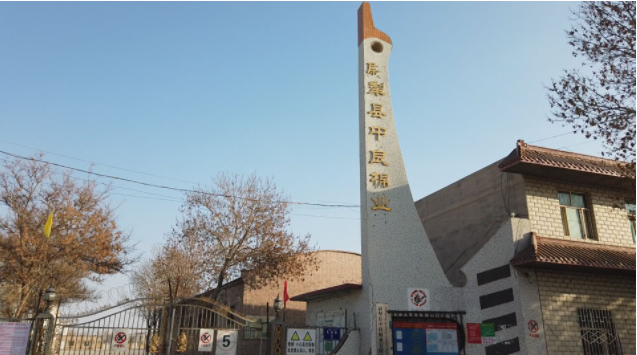
尉犁县中良棉业有限责任公司 (南方周末记者 毛淑杰/图)
作为北疆棉企,昊星棉麻业务经理高瑞楠举例称,每亩地大约产400公斤棉花,当前机器采摘成本只需100块钱。如果是人工采,每亩成本达800块,还不包括人工的吃住成本。“机采效率高,成本又低,何必用人工呢?现在北疆棉田里,有时候人都很少看见。”高瑞楠说。

石榴籽服饰有限公司 (南方周末记者 毛淑杰/图)
贴吧招工广告与研究报告
新疆棉纺织业遭受“强迫劳动”指责,并非始于BCI。在此之前,澳大利亚、美国、英国等机构或媒体也有诸多发声,并公布了“调查报告”。
在BCI瑞士总部2020年12月18日发布的声明中,援引了美国华盛顿全球政策中心(CENTER FOR GLOBAL POLICY)的一份报告。报告作者郑国恩(Adrian Zenz)曾被中国外交部发言人称为是“美国情报机构操纵设立的反华研究机构骨干”。
这份名为《新疆劳动力转移与动员少数民族摘花》的报告称,“每年有超过50万少数民族工人被调派参与季节性采棉工作,他们的工作环境可能存在很高的强制性。”
同时,报告还质疑了中国新疆地区的脱贫工作。
比如,“基层政府组织培训用工”被视为“强迫劳动”,“鼓励村民勤劳致富”被视为“宣传洗脑”,“一站式用工服务”被视为“严密监视”, “方便职工的集中托儿”被视为“奴化教育”。然而,在区分是否“强迫劳动”的重要因素——薪酬证据方面,该报告显得语焉不详。
类似关于新疆地区的“学术报告”或“人权报告”并非少数。
2020年3月1日,澳洲智库“澳大利亚战略政策研究所”(简称ASPI)发布了《贩卖维吾尔族:疆外的“再教育”、强迫劳动和监控》研究报告。这份报告指控新疆地区存在强迫劳动,并且少见地列出了“可能有意或无意参与强迫劳动的外国和中国公司”。
从报告内容可见,报告数据来自于“公开的中文文件、卫星图像分析、学术研究和实地媒体报道”等。
南方周末记者对报告引用内容溯源后发现,其中存在不少误读。
比如,报告称“多种来源表明,在中国各地的工厂中,许多维吾尔族工人在所谓的‘军事化管理’下过着苛刻的,隔离的生活。”该结论引用的资料,是中文社交平台“百度贴吧”里一则招工广告。广告用中文写道,“合同期为一年起签!……半军事化管理,能吃苦,人员不流失,合同签多久,就上班多久!100人起送!”在中国现实语境中,这样的网络招工广告并不具有足够的权威性和真实性。
再如,报告引用了一篇名为《让民族团结的种子根植于心——市妇联真情关爱少数民族女工侧记》的新闻报道。原报道显示,“多年来,泰光妇联通过妇联成员与维吾尔族女职工分组联系,开展走访,……设立心理疏导室、谈心室等,对维吾尔族女职工开展心理疏导服务。”这则报道被解读为:“有证据表明,在工厂内部,工人的思想和行为受到严密监控。”
近年来,这些并不严谨甚至充满偏见的“学术报告”,已成为有的西方媒体及组织机构援引数据的来源,进而广为传播。
2020年12月15日,英国广播公司BBC发布视频报道,援引上述报告数据,指新疆棉企可能存在强迫劳动。同时,报道称,BBC记者在新疆库车石榴籽服饰有限公司(简称“石榴籽服饰公司”)采访时遭遇阻拦。从视频画面来看,这家工厂被高墙环绕,似乎充满秘密。
南方周末记者实地走访了这家公司,发现这里是一家正常运营的服装加工厂。石榴籽服饰公司负责人欧阳志军向南方周末记者介绍,公司于2020年3月25日设立,目前厂区有三栋厂房,分别包括服装厂、箱包厂、鞋厂等。工人多是在乡镇发放招聘广告后,公开招募而来。
“以服装厂为例,工人招聘来之后,我们会对他们进行培训。培训期间他们有保底的工资每月1540元。经厂里正式录取后,我们会和员工签订正式劳动合同。”欧阳志军介绍。
他向南方周末记者出示了员工的劳动合同和退工单。据其介绍,工厂自设立以来,员工流动性较大。“因为我们的员工都是从农村招聘来的。农民到工厂学技术,肯定需要一个适应过程。经过培训后,适合的就留下;不适合的,我们会退工。”
古力尼散木·努尔东是库车市玉奇吾斯塘乡人。她于2020年4月进入石榴籽服饰公司。经过培训已熟练掌握了制衣流程,短短几个月从普通女工成为车间小组长。
“我结婚之后一直在家照顾老人和孩子。2020年4月的时候,我老公打听到这里新开了一个服装厂,就鼓励我试一下。”古力尼散木·努尔东说,工作日她吃住在工厂里,每天中午有1个半小时的午休时间。周末时搭乘公交车回家,路上大约要半个小时。“家里多一个人挣钱后,生活水平明显提高了。目前的生活很合心意,接下来,我的目标是成为工厂车间的指导老师。”
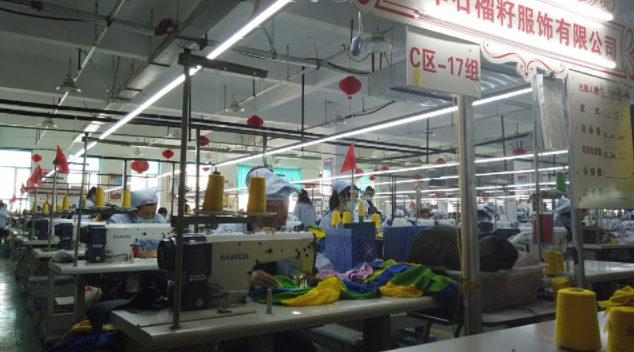
石榴籽服饰有限公司车间 (南方周末记者 毛淑杰/图)
棉花里的“暗战”
为何此次新疆棉花遭遇BCI“除名”?
BCI最高权力机构是BCI会员大会,选举出理事会处理日常工作。2021年1月20日,南方周末记者从BCI总部官网看到,当前BCI理事会共有11家成员,另有2名独立理事会成员。这些企业或机构大多来自印度、巴基斯坦、澳大利亚、美国等国家,没有一家是“中国籍”。
当前,BCI理事会主席由马克·卢科维兹(Marc Lewkowitz)担任,他也是美国“SUPIMA”公司的总裁兼首席执行官,该公司旨在运营和推广美国优质棉花皮马棉(PIMA Cotton),与中国新疆棉花存在一定程度的市场竞争关系。
此外,3家欧美零售商品牌也跻身理事会,分别是英国零售品牌玛莎百货(Marks and Spencer)、瑞典服饰品牌H&M(Hennes & Mauritz)、美国牛仔服饰品牌李维斯(Levi Strauss & Co)。
当前,BCI数千名全球会员中,中国会员主要集中在产业链中上游,大多为棉农、轧花厂、纱厂等。而品牌商类中国会员只有2家,分别是安踏、丽婴房。
上市公司安踏体育(02020)在2019公司财报中披露,该公司于2019年成为BCI会员,系成为首家加入BCI的中国体育用品公司。2020年8月,上海婴童用品公司“丽婴房”也宣布加入BCI,并承诺到2024年采购60%的“更可持续棉花”。
在BCI建设的棉纺生态中,中国企业和欧美企业的话语权也并不平等。掌握采购量的产业链下游品牌商的天然优势进一步压低了中方的“天平”。
“除了很紧俏的年份,棉花市场大部分时间里都是买方市场。”张彪介绍称,很多国际棉纺品牌将使用BCI可持续棉花当成“亮点”,并对供应链进行溯源。如果原材料不是可持续棉花,品牌商会拒接购买。
“所以,若想跟欧美大品牌合作,必须拿到BCI可持续棉花配额。为了拿到认证,必须听BCI的话种植。反之,如果不跟BCI合作,不只是棉农卖不出好价钱,连纱厂、布料厂、成衣厂等也要权衡利弊,继而造成整个棉纺产业链都会受到影响。”张彪说。
2020年以来,耐克、H&M、阿迪达斯等多家欧美服饰品牌公开抵制新疆棉花。
瑞典快消品牌H&M在官网声明中提到,“新疆维吾尔自治区(XUAR)是中国最大的棉花种植区,到目前为止,我们的供应商一直从该地区与BCI相关的农场采购棉花。而BCI决定暂停在XUAR的BCI棉花许可,意味着‘对于我们的生产,与我们合作的供应商将不会从XUAR采购BCI棉’ 。”
美国品牌耐克也于2020年3月发布声明称,其不从新疆地区采购产品,已和合同供应商确认,不使用新疆地区的纺织品或纺纱品。此外,耐克还表示,其在中国青岛的工厂已停止从新疆地区招聘新员工,该工厂将不再有任何新疆员工。
欧美品牌商的公开“割席”,让中国棉纺织品贸易企业面临“两难”。
一位不愿具名的企业负责人表示,“很多品牌商都知道,我的企业和整个新疆不存在强迫劳动。但迫于压力,他们不得不跟我们划清关系,拒绝使用我们公司的原材料,对公司营收造成巨大损失。”而且,“经济损失只是表面的,品牌的损失更是无法估量。”

尉犁县中良棉业有限责任公司 (南方周末记者 毛淑杰/图)
棉企呼吁自建标准
经此一事,多家新疆棉企负责人认为,中国应该建立自己的可持续棉花规范。
在棉花产业链条上,棉农及农场位于最上游,紧随其后的分别是加工端,如轧花厂、纱厂;成品端,如布匹厂、成衣厂;销售端,如贸易商、棉纺零售品牌等。BCI作为可持续棉花标准倡议机构之一,连通了上下游的各个环节。
多名棉企负责人介绍,通过BCI的审核后,处于上游的棉企每年会得到“可持续棉花”的配额估值,然后随着棉花进入不同生长阶段,该数据也不断更新。每到收获时节,棉企们就在BCI提供的交易系统中,依照配额值向下游企业销售可持续棉花。“配额值需要经过BCI的审核估算,并非我们生产加工的所有棉花都能通过BCI认证。”张彪说。
另一方面,下游品牌商向BCI会员企业采购经认证的棉花,并根据采购量向BCI缴纳相应费用。为了维护企业形象,国际大品牌对原材料会有一定标准。比如不能使用童工、保障棉农体面劳动、保障土壤可持续利用等。基于BCI可持续棉花标准中环保、人权等理念,下游品牌商往往将采购BCI棉花作为公司亮点。
“零售品牌商给BCI巨额的会员费和采购费,而BCI创造了一个可持续棉花的生态。如果棉花出现了问题,那不是品牌商的问题,而是BCI没做好把关。我觉得他们是互相保护的关系。”一名不愿具名的棉企负责人如是评论。
尉犁县中良棉业有限责任公司总经理李家钢表示,“BCI其中的某些条款,不适合我们的发展,希望国家有关部门出面牵头,组织行业人士制定一套中国自己的标准化的生产流程。”
“以体面劳动为例,BCI规定是‘关爱职工,不要体罚,不要欠薪,不要童工’等。”张彪认为,虽然BCI号称是全球标准,但其要求并不高。以当前新疆地区大多数农场的种植水平来看,符合率较高。“但是,标准是他定的,权力在对方那里。所以我们才会受制于人。”
2020年7月,美国推出了美国棉花信任协议(U.S. Cotton Trust Protocol®),并宣称,“在供应链审查日益严格以及对透明度的需求不断增长的时期,美国棉花信任守则将为可持续性的棉花种植设定新标准。”
刘志担忧,UCTP一旦获得了国际棉纺织领域的控制权,势必要求各国使用美版“认证标准”和“供应链追溯系统”。加之美国在国际销售领域原本的控制力,中国纺织产业发展将陷入更大被动。
其实,“强迫劳动”这一概念的形成过程中,一些美国媒体及机构就一直高度关注。
2018年12月18日,美联社推出名为《新疆再教育营强劳产品出口到美国》的新闻报道,引发美国海关与边境保护局对来自中国的进口产品开展调查。
2019年3月,《华尔街日报》称BCI会员公司存在强迫劳动问题,并质疑BCI公信力。
2020年1月,美国公平劳工协会发布《中国新疆强迫劳动》专题报告,进一步宣称“工人可能被送往工厂无薪工作,被强迫劳动”。
兰州大学政治与国际关系学院国家安全研究中心执行主任曹伟向南方周末记者指出,美国现在关注新疆“强迫劳动”或是人权问题,实则是个幌子。
“没解决吃饱饭的问题谈人权是空中楼阁。我们现在对贫困维吾尔族同胞提供培训、就业岗位,却被西方炒作成 ‘强迫劳动’,造成了非常坏的国际影响。”
曹伟称,新疆的棉花产量在全国棉产量中比例很高。如果中国出口的纺织品、内销的外资、合资品牌不能使用新疆棉花,既限制了新疆棉纺织业的发展,也是对全国棉纺织业的冲击。
“棉花战事”还在持续发酵中。2021年3月24日,中国体育服饰品牌安踏在官方微博发表声明称,安踏一直采购和使用中国棉产区出产的棉花,包括新疆棉,在未来也将继续采购和使用中国棉。同时该声明还显示,“注意到了近日BCI发表的声明,并对此事严重关切,我们正在启动相关程序,退出该组织。”
【英文版】
Field Investigation | "Dark war" behind Xinjiang cotton
A heated discussion on Xinjiang cotton has taken place recently. Fashion brands, including H&M, Nike and Adidas, have come under fire on Chinese social media because of their provocative allegations on Xinjiang affairs and banning Xinjiang cotton. Better Cotton Initiative (BCI), a Swiss based organisation has been thrust into the limelight due to its decision to discontinue licensing cotton from the region.
What are the facts about Xinjiang's cotton industry?
In the winter of 2020, journalists from Southern Weekly conducted a field investigation in Xinjiang, carried out in-depth interviews with cotton farms, ginning mills, cotton seed companies, garment factories and other companies in the cotton supply chain. Many Xinjiang cotton companies are mired in trouble. And behind the plight, it is a "dark war" around the international cotton discourse.
A sudden "cease the cooperation" email
It was the coldest time of the year, the daytime temperature was well below zero. The midday heat given off by the sun could not melt the ice in the depressions.
ZHANG Biao is a young entrepreneur. After graduation, he returned to Xinjiang’s Yuli County to take over the cotton factory built by his family in the 1990s. Now he is the boss of Xinjiang Yuli Zhongwang Textile Company (Zhongwang Textile).

Xinjiang Yuli Zhongwang Textile Company (Zhongwang Textile)[Photo/Southern Weekly]
In December, the acquisition of cotton in Xinjiang ended, and the major ginning mills would set out to sell lint cotton. However, Xinjiang's long-staple cotton, which has always been popular in the past, did not sell very well in 2020.
"In October 2020, the company suddenly received a notice of suspension from BCI, who had a long cooperative relationship with ZHANG's company. It made a negative impact on this year's lint sales."
"We buy seed cotton from cotton farmers, process into lint and sell it to companies in the downstream sector." ZHANG said, they always purchase tens of thousands of tons of seed cotton. The cost of capital invested reaches tens of millions of Chinese Yuan (CNY). If having no stable cooperative customers, or encountering price fluctuations over the year, it is very likely we will make a great loss.
In 2015, ZHANG encouraged hundreds of farmers to set up the Zhongwang Cotton Growers Cooperative, which later became an executive partner of BCI. On a daily basis, ZHANG had to guide farmers through training, planting and harvesting, and reporting cotton data quarterly, in accordance with the requirements by BCI. Additionally, BCI would send staff to its corporate partners for regular inspections.
BCI is a non-profit organization, and its members are among the world's leading cotton suppliers and buyers. BCI is currently an important access for the international textile trade. In addition to BCI, major cotton producing countries such as Australia, Brazil and India have also developed their own standards for sustainable cotton, however, there is still a void in the Chinese market for these kinds of local standards.
BCI-certified cotton has a higher degree of market acceptance. ZHANG Biao also said, "Compared with ordinary cotton, the price per ton of cotton with BCI certification, is tens or even hundreds CNY higher. Moreover, retail companies of the cotton industry can also be BCI members. Joining BCI can help networking and expand business."
LIU Zhi (assumed name), a BCI China employee, said that there are many international standards for judging sustainable cotton, and BCI has the advantage of having both a systematic standard for accessing sustainable cotton and a large volume of cotton production. Today, BCI has thousands of members around the world and with great diversity, covering the up and downstream sectors of cotton industry chain.
Every year, around March, cotton farmers in Xinjiang begin to grow their cotton. As is customary, ZHANG Biao also has to report the cotton field data. However, in March 2020, ZHANG Biao unexpectedly received an email written "suspension of certification" from BCI China.
According to the email, "In view of the complexity of the current international environment, BCI Board of Directors has finally decided to suspend giving licenses or certificate from 2020 to 2021 in China's Xinjiang region. At the same time, BCI will further upgrade its standard during the suspension period to better cope with the complex and changing external environment."
In the next six months, ZHANG Biao found that many activities of BCI in Xinjiang had not ceased, thus he continued to report relevant data in accordance with BCI requirements and to liaise with his BCI counterpart in South Xinjiang. "At that time, I thought the certification was suspended only for a year and it was still possible to look for cooperation in the future." ZHANG Biao said.
Six months later, more bad news arrived.
In October 2020, ZHANG Biao received an email from BCI's China office, "In view of the current complications regarding the upgrade work, BCI has decided to temporarily cease the implementation of the partnership agreement."
"The situation has deteriorated further." Zhang Biao said.
"Decisions from BCI's Head Office in Switzerland"
A few weeks after the "cease the cooperation" email was sent, BCI unfolded the mystery.
On 21 October 2020, BCI's Head Office in Swiss released a statement on its website saying that it had stopped issuing certificates for cotton in China's Xinjiang Uyghur Autonomous Region (XUAR) since March 2020.
The statement noted that "sustained allegations of forced labor and other human rights abuses in the XUAR have contributed to an increasingly untenable operating environment, and BCI has, therefore, taken the decision to cease all field-level activities in the region effective immediately, including capacity building, data monitoring and reporting." This was despite having no finding to support these allegations from their people on the ground in China.
In another statement on December 18, 2020, BCI's Head Office stated, "Researchers have found ....an increasing risk of forced labor at the farm level in Xinjiang."
Faced with the allegations, many people, including employees in China, were puzzled: why did the BCI issue such a statement?
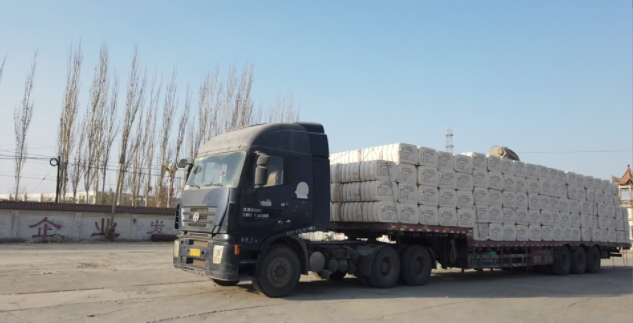
Yuli County Zhongliang Cotton Industry [Photo/Southern Weekly]
According to Liu Zhi, a BCI China employee, currently BCI has more than ten partners in Xinjiang, such as cotton companies in Bole, Kuerle and Aksu. In the mid-2020, BCI China had sent staff to Xinjiang to conduct field research in many places. "This research did not cover all partners but selected a few of them. According to the information I already know, the visit did not discover any forced labor," said Liu.
Lee Chengjun, general manager of Bazhou Taichang Agricultural Development Company also confirmed that a number of BCI China staff arrived at Taichang in May 2020 for a two-day research trip, asking about the factory's operations and labor situation. "There were no unpleasant experiences at that time, no violations were found and no feedback was received later that the farm was found to be in breach of any BCI regulations." Lee Chengjun recalled.
In fact, as early as when the company first worked with BCI, ZHANG Biao had already realized that employment was an important item in BCI's assessment of cotton companies. Since 2020, BCI has also asked cotton farmers to take photos and videos of planting to prove compliance with BCI requirements in the production process. In ZHANG Biao's view, "We started receiving certification in 2015 and have had no problems since then. Why did the problem arise in 2020? "
On 1 March 2021, the BCI Representative Office in Shanghai issued a statement on its official WeChat account stating that it had recently received a letter of enquiry from some of its previous partners in Xinjiang. The statement also declares that BCI China strictly followed BCI’s audit principles and has not found a single case of forced labor in the second-party credibility audit and third-party verification carried out in Xinjiang since 2012."
The statement also indicates that BCI Shanghai will continue to communicate with its partners in Xinjiang to maintain a sustainable supply chain.
How BCI's Head Office in Switzerland came to the conclusion that there was a "risk of forced labor" remains unknown. This risk has never manifested itself into any situation where forced labour has been encountered. However, the negative impact of BCI's suspension of cooperation on cotton in Xinjiang is already visible.
Xinjiang Haoxing Cotton & Sisal Company is located in Bole, Bortala Mongol Autonomous Prefecture and has eight cotton farms, processing approximately 100,000 tons of lint cotton per year. The company joined BCI in 2013 and had been working with them for seven years.
"Because BCI discontinued its cooperation, the sales of our company's lint cotton for 2020 is not good, prices and sales have been impacted." Gao Ruinan, business manager of Haoxing, said that the company had only sold an estimated 10,000-20,000 tons of lint cotton by the end of December 2020. With reference to the sales volume in recent years, the regular standard should be 30,000-40,000 tons. "We now have a rough estimate of losses of more than 14 million CNY, or about a third of annual profits."
The panic is still spreading through retail companies in the cotton industrial chain.
Gao said that many of his company's customers are engaged in import and export of cotton textiles. After learning that Xinjiang cotton was delisted by BCI, they are all in panic. In order to secure export orders, some companies must stop cooperating with companies in Xinjiang, and purchase a large amount of cotton through companies outside Xinjiang and even China, but go to countries such as the US or Australia to solve the problem of raw material supplies.
ZHANG Biao said the company's business was not heavily impacted by this in 2020, but the future impact is difficult to assess. "The area and farmers that our cooperative promoted before would not be able to obtain BCI certification. This also means that the cotton we produce cannot go through BCI's channels to be distributed. And the relevant buyers or yarn mills we used to work with won't be willing to use the raw material we supply."
Disappearing workers in the cotton fields
Accused of ‘forced labor’, many workers in the cotton fields in Xinjiang feel aggrieved.
"Cotton farming uses labor mainly in the picking process. In the past, there were few employment opportunities, thus picking cotton became a side business for farmers to make money."
Lee Chengjun, general manager of Xinjiang Taichang Farm, can be considered as a "cotton veteran", experienced from farm establishment to mechanization of the entire process. His company is located in Xinjiang Yuli County, first created in 1994. At present, the company's cotton field is about 195 hectares. The cotton ginning mill has an annual output of ten thousand tons of lint cotton.
In the 1990s, the farm recruited cotton pickers with a payment of 0.6 CNY per kilogram. At the cotton harvest time, "cotton pickers" from Gansu, Qinghai, Sichuan, Henan and other provinces enter Xinjiang.
According to Lee Chengjun, around 2003, the price of Yulin’s hand-picking cotton labor was over 2 CNY per kilogram. The average pick was 80-100 kilograms of cotton flowers per capita one day, totaling 200-300 CNY per day. "It is possible to pick 150 kilograms a day and earn tens of thousands of CNY a month".
In recent years, the mechanization of cotton production in Xinjiang has accelerated. The number of workers has been greatly reduced. Every harvest time, "cotton pickers" from all over the country have been withdrawn from the vast Xinjiang cotton fields compared to the past, replaced by professional and efficient mechanized operations.
Compared to the earlier mechanization of North Xinjiang, farms in southern Xinjiang entered into the "cotton mechanization" era later.
"In 2015, our farms had a difficult time recruiting workers during peak seasons. Even with high payment, there were few cotton pickers so we also began to try harvesting machines." According to Lee Chengjun, Taichang tried machine picking for the first time in 2016 and achieved a 40 percent machine picking rate, which has been increasing every year since. By the cotton harvesting season in 2020, the machine picking rate on the farm will basically reach 95%. "Planting cotton in the past relied mainly on workers, but now it also relies on machines."
Whether it is a big farm of more than 500 hectares, or small farms with a few dozen hectares of land, mechanized picking of cotton in Xinjiang has become an unstoppable trend. ZHANG Biao said that from 2018-2020, the proportion of machine-picked cotton the company bought has rapidly risen. "In these last three years, the proportion of machine-picked and hand-picked was thirty-seventy, fifty-fifty and ninety nine-one respectively."
From cotton plantation, to spinning mills, all procedures in the cotton production chain in Xinjiang are actively adapting to the machine picking trend. According to WANG Hongzhe, Director of quality inspection department of Xinjiang Guoxin Seed Company, in recent years more cotton farmers inclined to buy seeds suitable for mechanized operations.
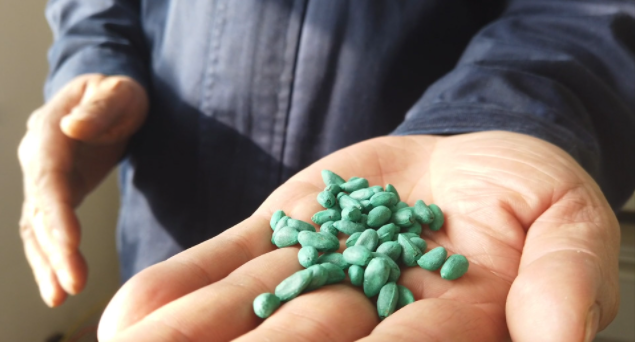
Cotton seeds grew by Xinjiang Guoxin Seed Company [Photo/Southern Weekly]
"When cotton farmers select seeds, they will always ask whether the cotton seeds are suitable for machine harvesting. For example, seeds like fruiting branches with high nodes and compact seedlings are more popular. Practice has also proven that these types of seeds sell well in southern Xinjiang." Wang Hongzhe said.
Several years ago, many textile mills in Xinjiang were not very welcoming to machine picked cotton. This is because compared to hand-picked cotton, machine-picked cotton has more impurities, less yarn output and a lower weaving rate. "But now, textile mills also welcome machine picked cotton, because of the low cost of machine picking. The price is preponderant, forcing yarn mills to improve the process." Zhang Biao said.
As cotton enterprises in the North Xinjiang, Haoxing cotton business manager Gao Ruinan said each mu (1 mu equals to about 666 square meters) of land produces about 400 kg of cotton, whereas the current machine picking costs only 100 RMB. If it is hand-picked, the cost per mu will rise up to 800 RMB, which does not include the cost of food and accommodation of laborers. "Machine picking is efficient and low cost, so why use hand picking? Now in the North Xinjiang cotton fields, it is rare to see people working in the fields." Gao Ruinan said.
Recruitment advertisements on Baidu Posting and research reports
The accusations of 'forced labor' in Xinjiang's cotton industry did not begin with BCI, but were preceded by a number of statements and 'investigation reports' published by a ‘think tank’ or media in Australia, the US and the UK.
On 18 December 2020, BCI's Head Office in Switzerland issued a statement, which cited a report by CENTER FOR GLOBAL POLICY, a Washington DC based “think tank”. The author of the report, Adrian Zenz, has been described by a Chinese Foreign Ministry spokesperson as "the backbone of an anti-China research agency controlled by the US intelligence agencies".
The report, entitled “Labor Transfer and the Mobilization of Ethnic Minorities to Pick Cotton”, states that "more than half a million ethnic minority workers are deployed each year to work in seasonal cotton picking, and their working conditions can be highly coercive."
At the same time, the report questioned efforts to alleviate poverty in China's Xinjiang region.
For example, "training for workers organized by local governments" is considered as "forced labor", "encouraging villagers to work hard to get rich" is seen as "brainwashing". In addition, the "one-stop employment service" is regarded as "close surveillance". The "centralised childcare for workers" is regarded as "slavery education". However, the report is silent on the evidence of payment and information from alleged victims, important factors in distinguishing whether it is 'forced labor'.
Similar 'academic reports' or 'human rights reports' on the Xinjiang region are not rare.
On 1 March 2020, the Australian Strategic Policy Institute (ASPI) released a study "Uyghurs for Sale by Vicky Xiuzhong: 'Re-education', forced labour and surveillance beyond Xinjiang". The report alleges ‘forced labor’ in the Xinjiang region and, in a rare move, lists "foreign and Chinese companies that may be involved in forced labor, whether intentionally or unintentionally", several of which have since issued statements denying any involvement in any of the companies mentioned in the report.
As the report shows, it draws its data from "publicly available Chinese documents, satellite image analysis, academic research and field media reports" but fails to include any human intelligence.
Journalists sourced the report and found that there is a lot of misinformation.
For instance, the report states that "multiple sources suggest that many Uighur workers in factories across China live harsh, segregated lives under the so-called 'militarized administration'." However, the conclusion only cites a recruitment advertisement from a Chinese social media platform Baidu Posting. The advertisement reads in Chinese, "the contract should be signed on the premise that the employee work for more than one year! ...... Semi-military administration, able to endure hardship, no turnover, work for as long as the contract lasts! Directly set off once 100 people are gathered!" In the real context of Chinese language, such online recruitment advertisements do not have authority and authenticity and are generally viewed, as they are written, with a sense of sarcasm or irony, usually well understood by the reader who is familiar, but, like sarcasm and irony, easily misunderstood by those who are culturally unaware or linguistically challenged.
In recent years, these subjective and even biased non peer reviewed "academic reports" produced, not from academia, but from US government supported and funded bodies, have become the source of data cited by some Western media and organizations, which in turn, given the appearance of approval from organisations such as the US Senate, has been widely spread.
On 15 December 2020, BBC released a video report citing data from the above-mentioned report, suggesting that forced labor may exist in Xinjiang cotton companies. In the meanwhile, it was reported that a BBC reporter was prevented from conducting an interview at the Xinjiang Kuche Pomegranate Seed Garment Company. From the video footage, the factory was surrounded by high walls and appeared to be full of secrets.
A Journalist of Southern Weekly visited the company and found it to be a functioning garment processing factory. Ouyang Zhijun, who was in charge of the company, introduced the company, which was set up on 25 March 2020. There are three buildings in the factory, including a garment factory, a luggage factory and a shoe factory. Workers were mostly recruited openly after job advertisements were issued in the villages and towns.
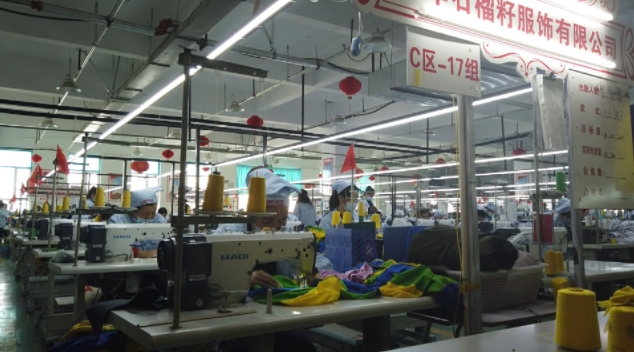
Workshop of Xinjiang Kuche Pomegranate Seed Garment Company [Photo/Southern Weekly]
"Take the garment factory for example, after the workers are recruited, we will train them. During the training period, they have a guaranteed salary of 1,540 CNY per month. After being officially accepted by the factory, we will sign a formal labor contract with the employee." Ouyang Zhijun introduced.
He showed the employees' labor contracts and resignation forms to the journalist. According to Ouyang, the factory has had a high turnover of employees since its establishment. "Because all our employees are recruited from the countryside, they definitely need an adaptation process to learn some skills. During, and sometimes after training, those who are suitable will stay; those who are not, will leave or be dismissed."
Gulinisanmu Nuerdong is a native of Kuche. She joined Pomegranate Seed Garment Company in April 2020. After training, she has become skilled in the garment-making process. She became a workshop team leader from an ordinary female worker in just a few months.
"I have been looking after the elderly and children at home since I got married. In April 2020, my husband heard about a new garment factory here and encouraged me to try it out." Gulinisanmu Nuerdong said.
She lives and eats in the factory during the weekdays and has a one-and-a-half hour noon break every day. At weekends, she takes the bus home, which takes about half an hour each way. "The standard of living has improved significantly with an extra person who makes money at home. Life is very agreeable at the moment and my next goal is to become an instructor in the factory."
"Dark war" behind the cotton
Why was Xinjiang cotton "delisted" by the BCI this time?
The General Assembly, consisting of all BCI Members, is the ultimate authority of BCI and elects a Council to represent it and handle its daily work. According to BCI's official website, up to January 20, 2021 there are currently 11 members of the BCI Board of Directors and two independent Board members. Most of these companies or institutions are from India, Pakistan, Australia, the USA. Nevertheless, despite being the world’s number one producer of cotton, none of them are from China.
Currently, Marc Lewkowitz is the Chairperson of the BCI Council, who is also the President and CEO of Supima, a US-based company that operates and promotes PIMA Cotton, a premium cotton from the US. It also contributes to a competitive relationship with Xinjiang cotton in China to some extent.
In addition, three European and American retailer brands are on the Council: British retailer Marks and Spencer (M&S), Swedish brand Hennes & Mauritz (H&M) and American denim brand Levi Strauss & Co (Levi's).
Currently, among thousands of BCI global members, Chinese members are mainly concentrated in the upper and middle part of industrial chain, including mostly cotton farmers, ginning mills, yarn mills and so on. There are only two Chinese members categorized into brands, namely Anta (which has started the process to quit BCI) and Les Enphants.
In the cotton ecosystem built by BCI, Chinese companies and European and American companies do not have equal voice or power. The natural advantage of the brands in downstream sector of the industrial chain, who control the purchasing volume, further breaks the balance from the Chinese side.
"Except for the years when there is a great demand for cotton, the cotton market is a buyers' market most of the time." ZHANG Biao said that many international cotton brands will use BCI sustainable cotton as a "highlight" and traceability of the supply chain. If the raw material is not sustainable cotton, the brand will refuse to buy it.
"So, if you want to work with big brands in Europe and the US, you have to get a BCI sustainable cotton quota. In order to get the certification, you have to follow BCI's instruction and grow cotton in a certain way. Conversely, if you do not work with BCI, not only cotton farmers cannot sell at a good price, even yarn mills, fabric mills, garment factories also have to weigh the pros and cons, which in turn causes the whole cotton industrial chain will be affected." ZHANG Biao said.
Since 2020, Nike, H&M, Adidas and many other European and American retail giants have publicly boycotted Xinjiang cotton.
European and American brands publicly distance themselves from Xinjiang cotton, so that Chinese cotton textile trade companies face a "dilemma".
An anonymous manager of a company said, "Many brands know clearly that there is no ‘forced labor’ in my company and in Xinjiang as well. But due to public pressure, they have to draw a line with us and refuse to use our company's raw materials, causing huge losses to the company's revenue."
Cotton companies call for Chinese standards
A number of cotton companies in Xinjiang believe that China should establish its own sustainable cotton standard.
In the cotton industrial chain, cotton farmers and farms are situated in the most upstream region, followed by the processing, such as ginners, yarn mills; then finished products, such as cloth factories, garment factories; moving through to the sales end with traders, cotton retail brands and so on. BCI as one of the sustainable cotton initiative institutions, links the various processes upstream and downstream.
According to several managers of cotton companies, after being certified by BCI, cotton farmers get a quota valuation of "sustainable cotton" every year and the data is constantly updated. At harvest time, cotton farmers sell cotton to downstream companies in accordance with the quota value in the trading system provided by BCI.
"The quota value is subject to BCI's audit estimates. Not all the cotton we grow and process can be certified by BCI." ZHANG Biao said, despite the growing and processing stages being exactly the same.
On the other hand, downstream brand owners purchase certified cotton from BCI membership companies and pay the corresponding fees to BCI according to the purchase volume. To maintain their corporate image, giant international brands stick to certain standards for raw materials, such as no child labor, decent work and conditions for cotton farmers and sustainable soil use. Based on concepts such as environmental protection and human rights in BCI's sustainable cotton standard, downstream brand owners often use sourcing BCI cotton as a company highlight.
Lee Jiagang, general manager of Yuli County Zhongliang Cotton Industry, said, "Some of the terms of BCI are not suitable for our development. I hope the relevant state departments can take the lead and develop a China Brand Standard for the production processes."

Yuli County Zhongliang Cotton Industry [Photo/Southern Weekly]
In July 2020, the U.S. launched the U.S. Cotton Trust Protocol(UCTP), declaring that " the U.S. Cotton Trust Protocol will set a new standard for sustainable cotton farming in a time of increasing supply chain scrutiny and growing demand for transparency. "
LIU Zhi is concerned that once the UCTP gains control of the international cotton textile sector, it will require countries to use the US version of the "certification standard" and "traceable systems for the supply chains". Coupled with the original control the United States has in the field of international trade, the development of China's textile industry will fall into an even greater dilemma.
In fact, the formation of the concept ‘forced labor’ has been of strong connection to some US media and institutions.
On 18 December 2018, the Associated Press launched a news report titled "US sportswear traced to factory in China's internment camps" which triggered an investigation on imports from China by the U.S. Customs and Border Protection.
In March 2019, Wall Street Journal claimed that BCI member companies had forced labor issues and questioned the credibility of BCI, all claims were denied and remain unproven.
In January 2020, U.S. Fair Labor Association released a report on "Forced Labour in Xinjiang, China", further claiming that workers may be sent to factories and forced to work without pay. Also unproven claims which are strenuously denied.
Cao Wei, a professor of the School of International Relations in Lanzhou University, pointed out that the US current focus on 'forced labor' or human rights in Xinjiang is really a disguise.
"Talking about human rights without solving the problem of basic living needs is just pie in the sky. We are now providing training and employment to the poor people in Xinjiang, but it is being mistakenly interpreted by the West as 'forced labor', which means China is being criticized and misunderstood internationally."
According to Cao Wei, Xinjiang's cotton production makes up a quite large proportion of China's cotton production. If China's exports of textiles, domestic sales of foreign investment, joint venture brands cannot use Xinjiang cotton, the development of both the cotton textile industry in Xinjiang and national cotton textile industry will be limited and even stalled.



